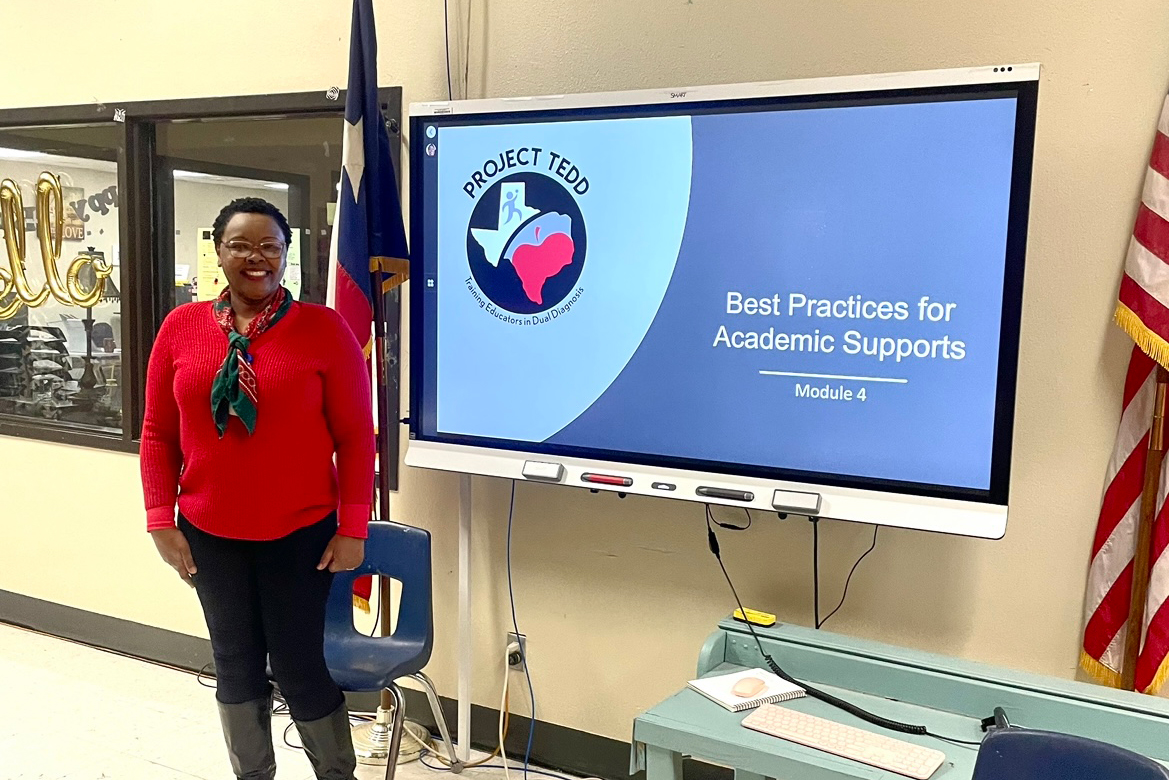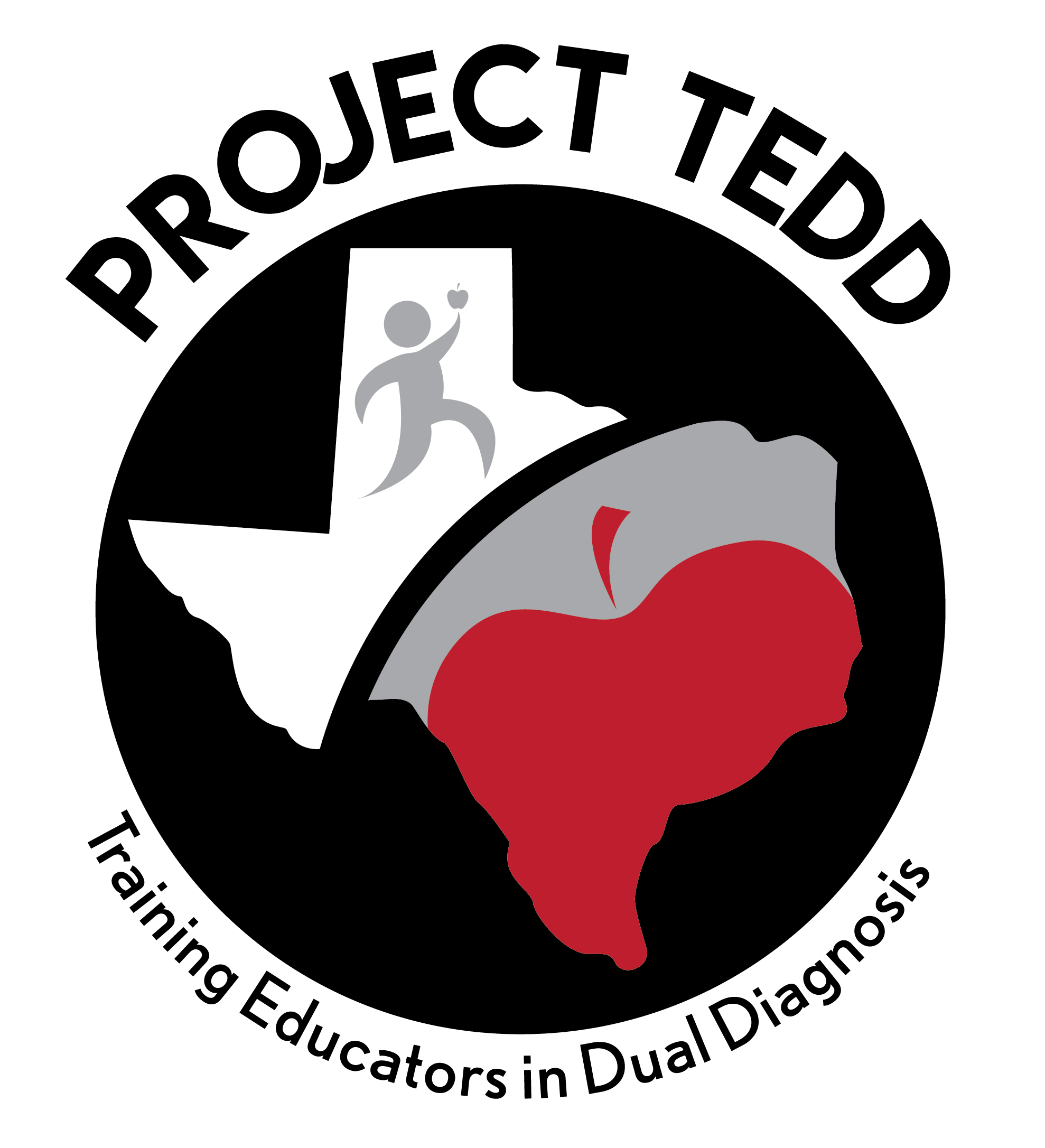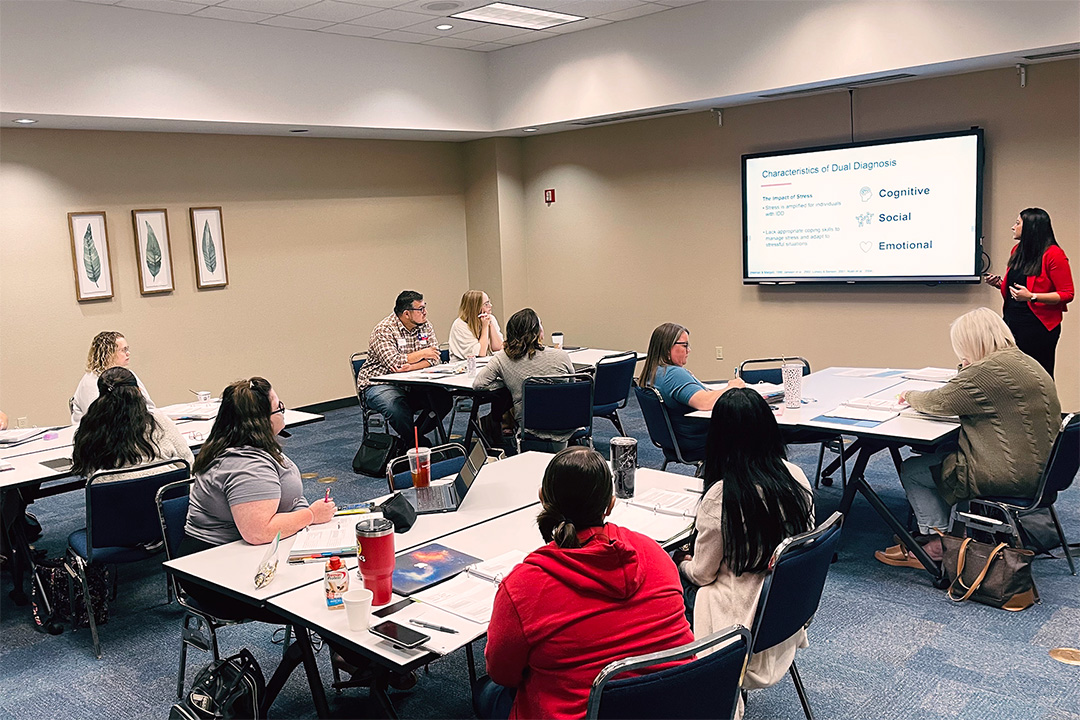
The program provides training in dual diagnosis, a complex condition that can affect a child's ability to learn.
Alice West is a special education teacher at Corpus Christi Independent School District (ISD), where she helps students with disabilities transition to life after high school.
Always on the hunt for the most current and effective approaches, West in 2022 joined a training program offered by Texas Tech University. The program shed light on dual diagnosis, an often-misunderstood condition where individuals experience both an intellectual or developmental disability (I/DD) and a mental health issue simultaneously.
West learned more about the complex relationship between mental illness and disabilities like autism, and she gained new crisis intervention techniques for her classroom. She found it so useful that she shared the training with 21 other teachers and parents at Corpus Christi ISD. Next school year, she plans to offer the training district-wide.
"The training definitely gave me the confidence I needed as a special education teacher," said West, who was recently named teacher of the year at her campus. "It pushes the teacher to use best practices and strategies to deal with behavior interventions."

West's story is just one of many illustrating the impact of Project TEDD: Training Educators in Dual Diagnosis, a statewide initiative coordinated by Texas Tech's Virginia Murray Sowell Center for Research and Education in Sensory Disabilities that has already reached more than 1,500 teachers, parents and special education professionals across Texas. The training program, now in its fourth year, seeks to address a state need for K-12 educators who specialize in teaching students with dual diagnosis.
Project TEDD covers a broad range of critical areas, including identification, referral, assessment, behavior and academic best practices, crisis intervention, working with families, collaboration and communication. Participants also learn how to pass on this training to other educators, parents or related service professionals, creating a far-reaching ripple effect.
TEDD's comprehensive approach is transforming the way educators approach dual diagnosis, leading to better outcomes for students across Texas, said Wayne Moore, project manager for Project TEDD. More students are getting much-needed support, he said.
"What may have gone unnoticed and unaddressed gives way to an intervention, which improves the lives of all involved," Moore said. "We encourage special education professionals to connect with this training to create a brighter future for many students with a dual diagnosis."
So far, a total of 210 educators from 189 Texas school districts have received training directly from Project TEDD. They have gone on to teach their skills to more than 1,325 others.

Applications are open for Year 4 of the program, which will cover Education Service Center (ESC) Regions 11-15. The remaining regions (ESC Regions 16-20) will be covered in the fifth and final round of trainings in 2024-2025.
Launched in 2020, TEDD has a five-year goal of partnering with all 20 ESCs in Texas to deliver direct training to 400 special education professionals who will themselves provide training to at least 2,000 other individuals.
The program is open to anyone who works in K-12 special education, including teachers, licensed specialists in school psychology, educational diagnosticians, school counselors, special education counselors and behavior specialists.
Project TEDD is coordinated by Texas Tech and funded by a $1.5 million grant from the Texas Council for Developmental Disabilities (TCDD). The mission of TCDD is to create change where all people with disabilities are fully included in their communities and exercise control over their own lives.
I/DDs are severe, chronic disabilities that occur before the age of 22, such as autism, cerebral palsy, traumatic brain injury and epilepsy. When a person with an I/DD also experiences a mental health condition like depression, anxiety or bipolar disorder, it is referred to as a "dual diagnosis." This term underscores the complexity of the individual's needs and the necessity for a multifaceted approach to their support and care.
